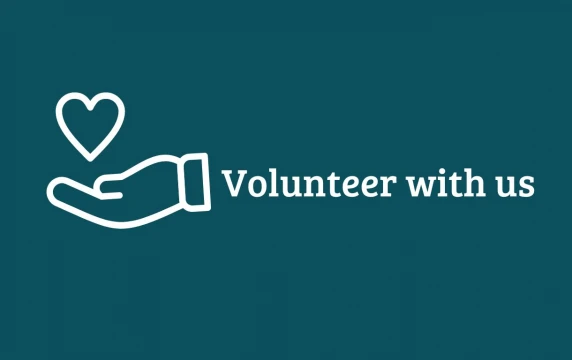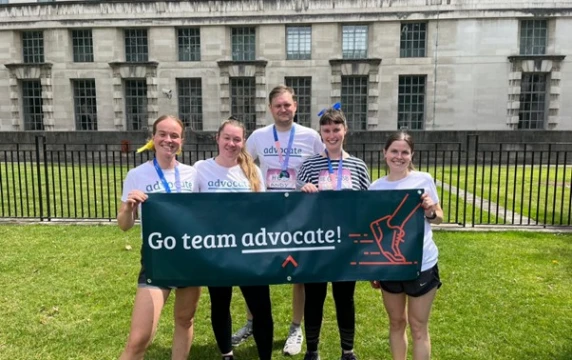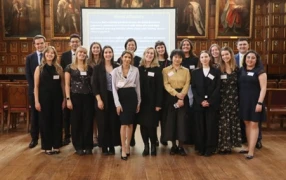"Follow your passion. If it is your passion to help those who are not, in that moment, able to help themselves then pro bono work will attract you and you will have no doubts."
Maureen Obi-Ezekpazu, a Family Barrister at Family Matters, speaks to us about following your passion and how doing pro bono helped her to follow hers.
At what stage in your career did you take on your first pro bono case?
I was in the third year of my law degree at South Bank University and signed up for the legal surgery at Streatham Law Centre. Of course, I was supervised by a qualified lawyer but I was able to give pro bono assistance. It was a housing repair case. The property owner had neglected the property and in consequence, the tenant was unwell. Taking instructions from the client, and then applying the law to the situation, allowed me to formulate a way to help the tenant. I visited the property and took pictures of its condition, which clearly fell below expected standards. I drafted a few letters, approved by the principal solicitor, and sent these off. I helped but the final outcome was not known because my time at the Law Centre ended after graduating with honours in law. Nevertheless, it left a very deep impression on me.
Why did you decide to undertake pro bono work?
To help those who require assistance to move their lives forward in a positive way and with tools that will help with their decision-making moving forward.
What was the most memorable case you worked on, and what did you do?
Everyone who has approached me for help is memorable and if I were to record them all, it would fill several book volumes.
I helped a young mother in my first-year post qualification (28 years ago) who had a number of children and all were of concern to the local authority. This young mother had been in care herself and did not have a parental figure to whom she could go for advice, assistance, and love. All of her children were removed and it was her mental and emotional state that required help. No one was offering assistance and she was just left to her own devices. Naturally, what she experienced was overwhelming and her response to this was overwhelming too. Offering ways to assist with managing her overwhelmed state was the pro bono part of the legal work undertaken. This part of the work should not be underestimated.
Another memorable case is one that resulted in practice within the child protection system being changed forever and is still relevant today, some eight years on, being quoted and relied upon up and down the country. I picked up this case for Advocate (then the Bar Pro Bono Unit). A client required representation on an application seeking permission to oppose adoption in respect of two children. The children were removed against a background of domestic abuse by the father of the children. She had turned her life around and by the date of the application for adoption she was in a new supportive relationship with no domestic violence, and other changes were evident. The changes were put to the court of first instance but were rejected. Following instruction to appeal and getting authorisation from Advocate to do so, an application for permission to appeal was crafted and lodged with the Court of Appeal. The Judge of the lower court had refused permission and so permission was sought from the Court of Appeal. A single justice in the Court of Appeal granted permission to appeal and the case went quickly to the Court of Appeal and was considered by the President of the Family Division. The court did not grant the appeal, but the decision and guidance given in this case changed social work, law, and judicial practice.
I was counselled by other lawyers that it was a hopeless case and that the outcome was inevitable but my resolve was to help. The case is Re: BS.
What effect did pro bono work have on your career?
I cannot really say. All I know is that I must help, where it is needed, when I am called upon to do so. In consequence of this desire to help, I have increased my pro bono work. The request for help comes now from many more sources and the demand is great. With experience, I have greater clarity about my role, which means lending a hand wherever necessary. This is the effect on my career of doing pro bono work, I resolve to do more.
What is the most rewarding thing about doing pro bono work?
- Knowing that you make a difference in the life of a person who needed your assistance at that precise moment in time.
- When someone says thank you, this appreciation is immeasurable.
- When I am doing exactly what my passion is. Remembering that my passion is love in action.
What advice would you give to any barrister unsure about whether to start doing pro bono work?
Follow your passion. If it is your passion (a burning furnace in your belly) to help those who are not, in that moment, able to help themselves then this work will attract you and you will have no doubts. Move forward and be optimistic. Because your passion comes from a place that is not your ego and so what you are doing does not feel like work. It is a way of being in the world, a calling in which you have an inner knowledge that your input will be of use to those you help. Who would not engage in pro bono work? It is so rewarding, so humbling, and just a wonderful thing to engage in, encouraging priceless personal growth, expansion, and learning.






